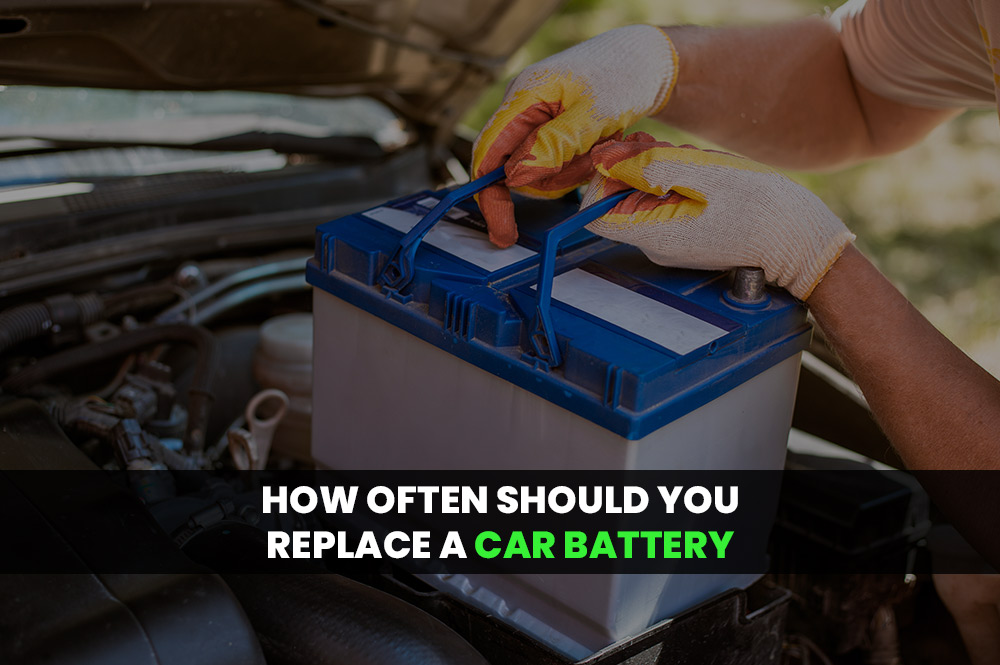How Often Should You Replace a Car Battery

When it comes to maintaining your vehicle, few components are as critical as the car battery. A well-functioning battery ensures smooth starts and reliable performance, but how do you know when it's time for a battery replacement? Let’s discuss some important points that indicate the signs of a dying or dead battery on your car.
Signs Your Car Battery is Dying or Dead
Diminished Cranking Power
One of the primary indicators that your car battery is on the decline is a noticeable drop in cranking power. When you turn the key, if you hear a sluggish, labored attempt to start the engine, it's time to pay attention. Diminished cranking power often points to a weakened battery unable to provide the necessary energy to kickstart your vehicle.
Flickering Lights and Electrical Issues
Another red flag is the appearance of flickering lights or unexplained electrical glitches. A healthy battery ensures a consistent flow of power to your vehicle's electrical components. If you observe flickering headlights or experience unexplained malfunctions in electronic systems, it's a clear indication that your battery might be reaching the end of its lifespan.
How Often Do Car Batteries Need to Be Replaced?
Understanding the lifespan of a car battery is crucial for replacement. Let's explore the factors that influence the frequency of Car battery replacements in Calgary.
Hot Weather
In regions with scorching temperatures, the toll on car batteries is often underestimated. High heat accelerates the chemical reactions inside the battery, leading to faster degradation. If you reside in a hot climate, be vigilant about checking your battery's health regularly. Consider replacing it every three to four years to avoid sudden failures during sweltering summers.
Cold Weather
Conversely, cold weather presents its own set of challenges for car batteries. In frigid temperatures, the chemical reactions within the battery slow down, reducing its overall efficiency. If you're in a colder climate, consider a replacement every four to five years to ensure optimal performance during chilly winters.
Don’t Let Climate Ruin Your Battery
Regardless of where you live, proactive measures can extend your battery's life. Investing in insulation or temperature-regulating accessories can shield your battery from extreme weather conditions, potentially elongating its lifespan.
Driving Habits Influence When to Replace a Car Battery
Your driving habits play a crucial role in determining when your car battery needs replacement. Let's explore how your day-to-day actions behind the wheel impact battery health.
Short Trips vs. Long Drives
Frequent short trips may not allow your alternator sufficient time to recharge the battery fully. This can lead to a gradual depletion of charge over time. On the other hand, regular long drives help keep your battery charged and in optimal condition.
Electrical Load and Battery Life
Modern vehicles come equipped with an array of electronic features, from advanced infotainment systems to power-hungry accessories. The cumulative load on your battery increases with each electronic component in use. Be mindful of excessive use to prevent premature battery depletion.
Testing Your Car Battery
Using a Multimeter
For a DIY approach, a multimeter can measure the voltage of your battery. Understanding the readings can give insights into its health.
Professional Testing
Visit a Batteries Store Calgary for a comprehensive battery test and battery replacement. They have specialized equipment to evaluate the battery's condition accurately.
Conclusion
Keeping your car battery in top condition involves a combination of vigilance and proactive measures. By recognizing the signs of a dying battery, understanding the impact of climate, and adjusting your driving habits, you can maximize the lifespan of this critical component. Visit Batteries Store Calgary for a regular battery check-ups and timely replacements ensure that you're not left stranded when you least expect it.